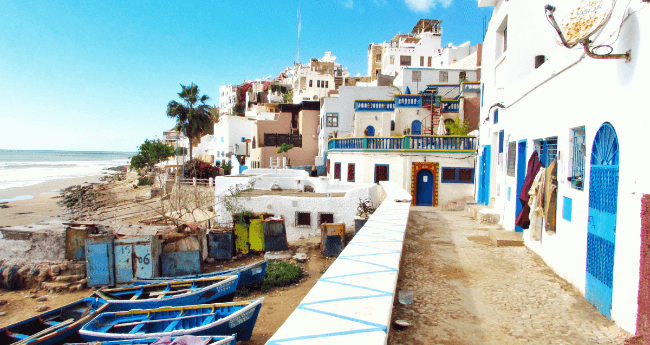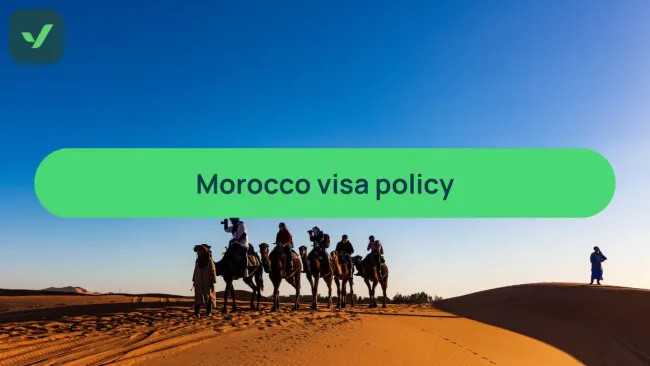
Morocco
Welcome to Morocco
Morocco Visa: Entry requirements and travel information for Morocco
Traveling to Morocco? You may need a visa – find out if you do, which type, and how to apply so you can get the paperwork out of the way and focus on your trip..
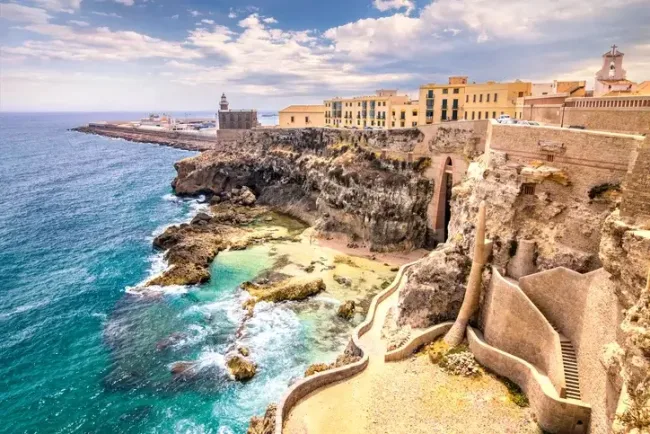
What’s a Morocco eVisa and who’s it for?
The Morocco eVisa is an electronic visa, which means that the application is 100% online.
Who’s the Morocco eVisa for?
This eVisa is available to travelers from three categories:
-
Nationals from Thailand, Israel, Azerbaijan, Guatemala, India, and Jordan.
-
Foreign nationals holding a residence permit in Australia, Canada, a European Union member state, Japan, the United Kingdom, the United States, New Zealand, Norway, and Switzerland.
-
Foreign nationals holding a multiple-entry visa (valid for a minimum of 90 days from the date of submission) for Australia, Canada, Ireland, New Zealand, a Schengen country, the United Kingdom, and the United States.
Who’s not eligible for a Morocco eVisa?
Algeria, Germany, Argentina, Australia, Austria, Bahrain, Belgium, Brazil, Bulgaria, Canada, Chile, China, Colombia, South Korea, and more.
Citizens who are not eligible for a Moroccan eVisa will need to apply for the visa they need at the nearest Moroccan embassy or consulate. Use our iVisa Checker Tool to find out your eligibility.
What’s the purpose of the Morocco eVisa?
The Morocco eVisa is designed for travelers seeking to visit Morocco as a tourist or for a short business trip.
How long can you stay with a Morocco eVisa?
This is a Single entry visa that allows for a 30 days per entry stay within a 180 days after issued validity period.
What’s a Morocco Business eVisa and who’s it for?
This is an electronic visa that specifically caters to travelers looking to conduct commercial and professional activities in Morocco. The application is 100% online.
Who’s the Morocco Business eVisa for?
Business travelers from more than 100 countries can apply for a Morocco Business eVisa. Find out if you qualify
What’s the purpose of the Morocco Business eVisa?
You can do the following activities while in the country:
-
Attend meetings, conferences, and seminars.
-
Enroll in a short-term training program.
This visa is not designed for engaging in employment activities. If your intention is to work in Morocco, you should apply for a work visa, which has specific requirements and permits for employment.
How long can you stay with a Morocco Business eVisa?
The Business eVisa for Morocco is valid for a maximum of 180 days from the date of issue and allows you to stay in the country for a maximum of 30 days per entry.
What’s a Morocco ETA and who’s it for?
This is different from a visa in that it has fewer requirements and is electronically linked to your passport. It’s an authorization that allows you to enter the country without applying for a visa.
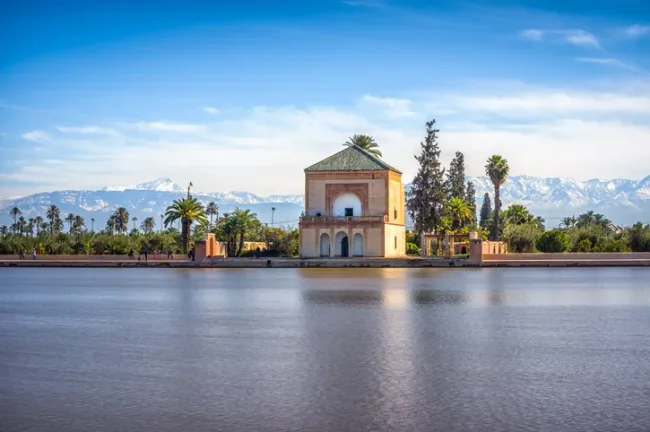
Who’s the Morocco ETA for?
This ETA is available to three kinds of visitors:
-
Citizens from Congo, Guinea, and Mali.
-
Nationals with a valid residence permit in Morocco.
-
Nationals transiting through Morocco (who will not leave the airport or port)
-
Nationals married to a Moroccan (supporting documents must be provided upon arrival in Morocco).
What’s the purpose of the Morocco ETA?
Holders of a Morocco ETA can visit the country for business, tourism, or transit purposes.
How long can you stay with a Morocco ETA?
The ETA is valid for 90 days from the date of issue, and the maximum stay is 90 days per entry. It's a Single entry document, meaning you'll have to apply for a new one if you leave Morocco and want to return.
What are the Moroccan long-term visa options and who are they for?
Morocco offers several long-term visa options for various purposes, such as employment, study, business, and residence. Here are some of the common ones:
Student Visa: For international students planning to study at a higher education institution, do a language course, or undergo a long-term internship in Morocco.
Work Visa: For foreigners employed by a Morocco-based business.
Researcher Visa: For academics, researchers, or scientists wanting to work at a certified Moroccan research center.
Family Visa: For individuals who want to join their relatives who are Moroccan citizens.
Medical Visa: For patients seeking medical treatment in a Moroccan medical facility.
At iVisa, we currently don’t offer these visas, but you can find out more from the Morocco Ministry of Foreign Affairs website
Staying healthy in Morocco: Here’s what you need to know
Healthcare facilities and standards in Morocco can vary significantly depending on the location and the type of facility. Here's what travelers should know.
Make sure to stay updated on routine vaccines
-
Consider vaccines for diseases like hepatitis A and typhoid.
-
Keep updated with Morocco’s COVID-19 requirements, such as quarantine, testing, or vaccine certificates, through your airline or the Moroccan government website
Medical facilities
-
In major cities like Rabat, Casablanca, and Marrakech, you'll find better-equipped facilities with more English-speaking staff.
-
However, in rural areas, medical facilities may be less advanced and harder to access.
-
For more reliable healthcare services, travelers typically prefer private clinics, which generally offer higher standards of care and more English-speaking staff. These facilities, however, can be more expensive.
-
Pharmacies are widely available in cities and towns, with pharmacists often able to provide advice and sell medication for minor ailments. Some medications that require prescriptions in other countries might be available over the counter in Morocco.
Health insurance
We recommend taking out health insurance before you travel anywhere from any destination.
All the major cities in Morocco will have private medical care, but it can get expensive. You should choose travel insurance with high medical limits.
Contact your insurance provider before traveling to make sure you have the right level of coverage.
Other things to consider:
-
Trip cancellation, delay, and interruption benefits.
-
Medical expenses and medical evacuation benefits.
-
Baggage coverage.
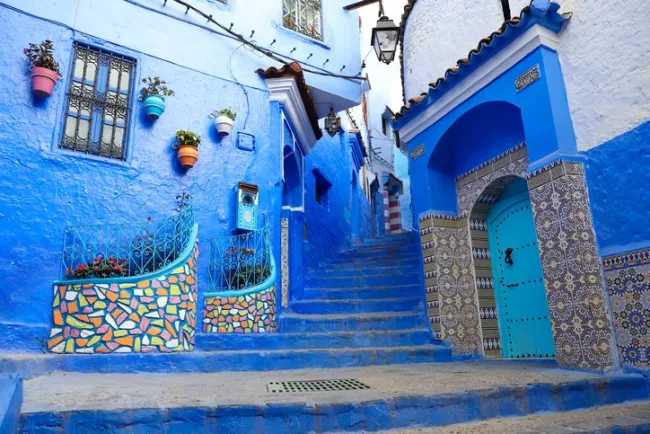
Things to be aware of when visiting Morocco
Keep an extra eye on the following to keep healthy and safe during your trip to Morocco:
-
Food and water safety: Travelers should be cautious about water and food safety to avoid illnesses. It's advisable to drink bottled or purified water and be cautious with street food.
-
Insect-borne illnesses: West Nile virus and dengue are present. Sandfly bites can cause Leishmaniasis, though it's less common. Use insect repellent, wear long-sleeved clothing, and sleep under mosquito nets or in air-conditioned rooms to reduce the risk.
-
Heat and humidity: Morocco's climate can be hot. Stay hydrated and protect yourself from the sun with hats, sunglasses, and sunscreen. Avoid heatstroke by staying in the shade during the hottest parts of the day.
Medication for personal use
Follow these tips to bring over-the-counter medicines into Morocco:
-
Declare all medications: Report all medication for personal use to the customs authorities.
-
Original packaging: Always keep medicines in their original containers and in transparent bags in your hand luggage.
-
Prescription or doctor's letter: Present the medical prescription issued by your doctor or other competent authority, preferably in English.
-
Check for restrictions: Contact your nearest Moroccan embassy to verify that all of your prescription(s) are legal to bring with you.
-
Quantity aligned with itinerary: Bring only a reasonable quantity that aligns with your stay duration to avoid complications.

 Australia ETA Online
Australia ETA Online
 United Kingdom ETA
United Kingdom ETA
 India Tourist eVisa
India Tourist eVisa
 Canada ETA Visa
Canada ETA Visa
 Turkey eVisa
Turkey eVisa
 Egypt eVisa
Egypt eVisa
 Singapore SG Arrival Card
Singapore SG Arrival Card
 Indonesia eVoa Visa
Indonesia eVoa Visa
 Aruba ED Card
Aruba ED Card

